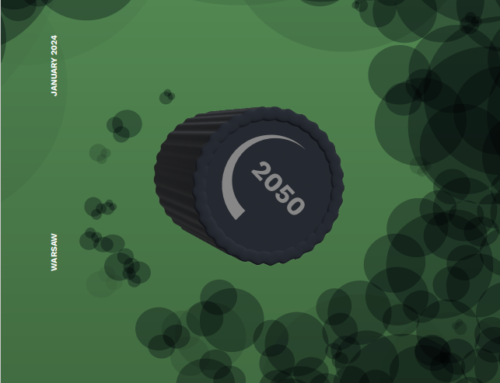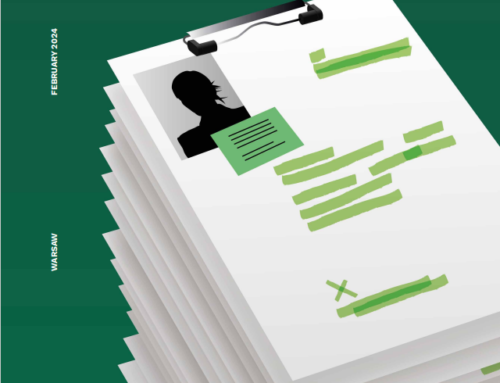Poland has spent 1% of its GDP helping refugees from Ukraine in the first months of the war
Published: 27/07/2022
During the first three months after Russia invaded Ukraine, 70% of Poles got involved in helping refugees. Private spending on this purpose may have reached EUR 2.14 billion (PLN 10 billion) during this period, 0.38% of GDP, according to the Polish Economic Institute’s estimates. For comparison, in 2021 as a whole, private spending on charitable causes amounted to PLN 3.9 billion. The total value of help for refugees assigned by the Polish authorities and provided by citizens during the first three months of the war amounted to almost 1% of the country’s GDP.
Poles spent EUR 1.93-2.14 billion (PLN 9-10 billion) on helping the refugees
Public spending linked to granting Ukrainian refugees access to benefits and social assistance, as well as to public services (especially healthcare and education) will amount to around PLN 15.9 billion this year.
The amount Poles spent on helping refugees during the first three months of the war was higher than the amount they spend on charitable causes in 2021 as a whole. The most probable amount spent on them is in the EUR 1.93-2.14 billion (PLN 9-10 billion) range.
“Estimated total annual spending in Poland by the public authorities and private individuals on helping refugees during the first three months of the war reached EUR 5.45 billion (PLN 25.4 billion)– the equivalent of 0.97% of Polish GDP in 2021. In our estimates, we took into account the money transferred directly or through public fundraising, as well as the value of items purchases for refugees, the value of the housing and food they were offered, and other forms of support. During the next stage – integration – efficient coordination and the mobilisation of the various public and social actors’ potential and resources will be key” said Piotr Arak, director of the PEI.
The PEI’s research shows that Poles’ engagement in supporting refugees from Ukraine was the strongest at the start of the war.
“During the first months of the war, 70% of adults were involved in support efforts. Half of Poles were consistently involved in helping refugees, both at the start of the war and in subsequent weeks. The leading forms of support were material and financial donations. 59% of respondents bought items for the refugees and 53% donated money. Less frequent forms of support were helping refugees sort out various matters (20% of respondents) and volunteering (17%). Meanwhile, 7% of respondents let refugees stay in their house or apartment,” said Agnieszka Wincewicz-Price, head of the behavioural economics team at the PEI.
Who was most inclined to help?
Among people with the highest monthly revenue (above PLN 5000 – EUR 1070 net), the percentage of people who helped refugees the most was three times higher than among people with the lowest revenue (below PLN 2000 – EUR 428). Yet even among people earning less than PLN 2000, assistance was widespread – just 26% of people in this group did not help in any way. A person’s level of education turned out to be important, too. A higher share of people with higher education helped – around 10 pp more than in the other groups.
Strong engagement in helping the refugees was also associated with factors such as charitable engagement before the war, direct contact with foreigners (especially Ukrainians) before the war, and regularly following media coverage of the war and the fate of refugees. 28% of male respondents said they did not help at all, compared to just 19% of female respondents. In terms of age, the youngest respondents (24-30 years old) contained the highest share of strongly engaged respondents (18%), but also of people who did not help at all (27%).
How the scale and form of help evolved
The scale, form and intensity of help for refugees changed as the refugee crisis and expectations about when the conflict would end evolved. With time, the percentage of people actively involved decreased. Around the start of May, 57% of respondents said they were involved in some form of assistance. Yet it is worth emphasising that 50% of respondents said they were helping both at the start of the war and later, when the survey was conducted.
The scale of social engagement was also unprecedented compared to Poles’ support for charitable and social causes prior to the war. Before it, 17% respondents spent their private time helping others; of these, 35% did so sporadically (a few times a year or less often).
The refugee crisis is entering the integration phase
During the first days and weeks of the war, Polish society’s support was not only material, but also largely symbolic, because, in many cases, it preceded institutional aid and had a significant influence on shaping public opinion in other countries.
“With time, the number of refugees residing in Poland changed, as did their needs. During the next stage, which the report’s authors refer to as “adaptation”, the role of the state became key as refugees were incorporated into the Polish state and welfare system, receiving access to public and social infrastructure, as well as institutional support” said Piotr Arak, director of the PEI.
Kategoria: Analysis / Press releases / Report / Reports 2022






